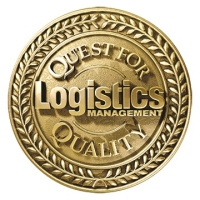
Written By: Brian Straight | Jul 12, 2018 12:00:00 AM
A search for logistics startup companies in Crunchbase returns over 3,000 results. Add in trucking and shipping and that number grows further. All of those companies believe they have disruptive products that will become the next big thing in trucking. But as good as their products may be, they are also competing with existing companies for visibility and market share in an increasingly crowded space. To conquer that space, a company needs the right mix of product innovation, marketing, sales and promotional efforts. Some companies are large enough that they dedicate entire departments to this while others choose to outsource these functions.
“The big thing for us is two-fold,” explains Thom Schoenborn, vice president of marketing for Instructional Technologies (ITI), which outsources its marketing and PR efforts to LaunchIt Public Relations. “One is skill-set, and the other is resources, which is to say budget and time.”
ITI is a company of about 25 people, Schoenborn notes, so building the in-house expertise an outside firm can provide is not within the scope of the company’s core mission.
“Outsourcing to a PR agency for us is [critical] to get out message out,” he says. “I think some people would think that there isn’t a skill-set, but marketing and PR does require a specific skill-set.”
Beth Malik, marketing director of SMC3 and an officer and treasurer for the Transportation Marketing and Sales Association (TMSA), echoes some of Schoenborn’s thoughts.
“I look at marketing outsourcing from the perspective of a baseball general manager. When a team wants to make the playoffs, there is a mission, and a target and a trade deadline,” she says. “The manager might pick up players to enhance the team; these players bring specific expertise for a specific period of time, helping the group achieve its goals. Whether that player remains on the team after the championship is won, or the project is completed, depends on their performance and the team’s ongoing needs.”
Malik points out that decisions must be made on a case-by-case basis with a focus on timing, cost and expertise relative to the marketing plan deliverables. “If I have the need for a specialist whose skills enable the delivery of a high-quality product in a shorter time then our internal team or allows our internal team to focus on more strategic initiatives, then I will, of course, choose the outsourcing route,” Malik explains. “For example, when creating videos for our two yearly supply chain educational events, Jump Start and Connections, we’ve enlisted the help of a video production team to make sure we can create an appealing, informative final product.”
Tapping outside assistance can free up internal resources and expand areas of expertise. SyncShow is a digital marketing agency that fills those gaps. “Marketing today is very different than just five years ago; today, companies need a multi-faceted approach of online marketing and offline,” explains Chris Peer, CEO of SyncShow.
“I look at marketing outsourcing from the perspective of a baseball general manager. When a team wants to make the playoffs, there is a mission, and a target and a trade deadline. The manager might pick up players to enhance the team; these players bring specific expertise for a specific period of time, helping the group achieve its goals. Whether that player remains on the team after the championship is won, or the project is completed, depends on their performance and the team’s ongoing needs.”
— Beth Malik, marketing director, SMC3
An outside agency can offer “greater depth of resources and industry expertise than an in-house team,” Peer notes, including search engine optimization, social media, writing, graphic designer, video, email marketing, and marketing automation. A company can also benefit from an agency’s price advantage over in-house talent. “Agencies can provide a comprehensive marketing strategy and expert-level resources at a fraction of the cost of hiring an internal team,” Peer says. “Let your agency pay for employer taxes, training & education, and computer hardware.”
Susan Fall, founder and president of LaunchIt Public Relations, says firms like hers can bring new perspective to clients.
“Often times, especially with startups, the principal players are so emotionally attached it’s difficult for them to consider a different perspective,” she explains. “Additionally, for young companies, they’re very proud of their new product or technology. A good agency works with the company to help them learn to frame their story in terms of benefits to the target market.”
Fall also notes that in-house marketing departments can sometimes be reluctant to challenge the C-suite. “Outside agencies have the advantage of not needing to worry about upsetting the boss,” she says. “We tell our prospective clients up front to prepare themselves to be challenged and not to expect a Yes Man because that’s just a waste of time, energy and money on everyone’s part.”
Schoenborn agrees. “[An agency] needs to be honest with their clients,” he says. “They [need to be able] to tell their clients that ‘it’s great that you think this is a story, but it really isn’t. … you have to know [the audience] you are talking to.”
For many companies, especially startups, it’s not the technology they struggle with, but rather the industry itself, Fall points out. “Each industry has its own nuances, language, acronyms and most importantly – what matters and the current issues, and our jobs as PR practitioners and marketers is to know those things,” she says. “The worst thing for a company to do is to appear to not know and understand their customer base and/or the industry they serve.”
Peer notes that a company should look at an outside agency as an extension of its sales team. “Think of your outsourced marketing agency and your sales team as one team,” he says. “I approach marketing as a ‘pre-sales’" initiative. Buyers have drastically changed the way they buy and make decisions and a strong marketing and communications program should set up your organization for increased sales. If your sales and marketing teams are working together each party should know how they contribute to revenue growth and how knowledge from sales benefits marketing and vice versa.”
When a decision is made to outsource, says Lance Platt, CEO of EpicVue, the benefits are many.
“The benefits … include such things as scalability, access to markets that are otherwise limited, access to expertise that doesn’t exist inside the company, leveraging industry relationships/connections, experience in certain areas that minimize the trial and error approach, etc.,” he says.
Platt does caution, though, that outsourcing marketing is not a cure-all. “Marketing is often referred to as ‘black magic’ as it is difficult to know exactly what kind of marketing is going to work,” he notes. “Marketing absolutely plays a key role in the success of products and services, but it can also be a black hole with campaigns that don’t work.”
Most of the benefits of outsourcing fall more on the PR side, Platt adds, giving companies instant access and credibility. “The biggest benefit we see is on the PR side with access to industry relationships, knowing what stories to tell and where to get them published, as well as general industry knowledge that includes information on which trade shows to attend and not attend,” he says. “Having access to the right PR company can make all the difference.”
By Brian Straight, Editor of FreightWaves, an Affiliate member of TMSA. For more information and to subscribe, visit www.FreightWaves.com.
Interested in learning more?
Join TMSA and visit the Members Only Section for more valuable resources and whitepapers.
And check out the TMSA Blog for more related articles!
Tags: Marketing

The Transportation Marketing & Sales Association congratulates the 43 winners of the 2016 EPA SmartWay Excellence Awards – particularly the members of TMSA that received the award, including Bison...

Logistics Management, a TMSA Affiliate member and Media Friend, recently announced the winners of the 35thAnnual Quest for Quality Awards. The Quest for Quality Awards are the gold standard for...

By Bill Fahrenwald, Executive Director, James Street Associates Do you really need the trade media? …and, is traditional media still relevant? With social media on the rise you are probably already...